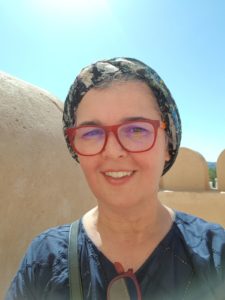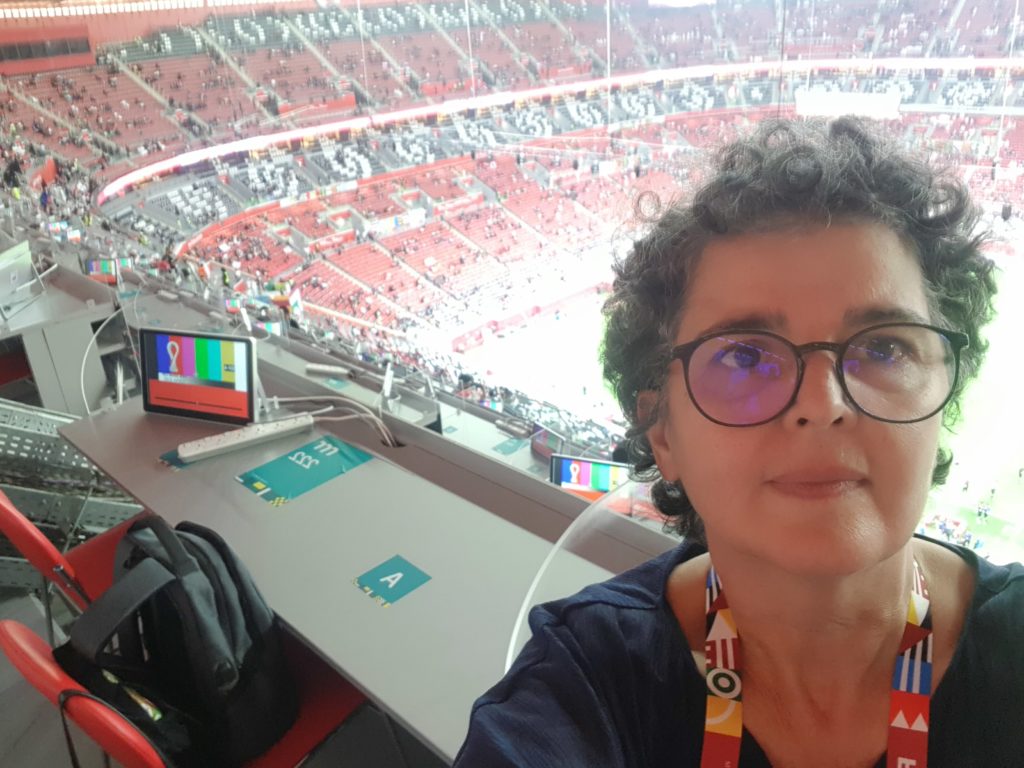São Paulo – Accessibility actions have grown exponentially in Qatar in recent years. So says Josélia Neves, professor at Hamad Bin Khalifa University in Qatar and one of the Gulf country’s leading experts in the field. She believes the World Cup to be held in Qatar in November is one of the factors that have spurred investments to make venues and events more accessible.
“Due to the World Cup, thanks to FIFA impositions, and above all because the country is now more accepting of persons with disabilities, the opportunity arose to reinforce efforts that were already being made across the country. I’d say that the World Cup was a driver for what was already in progress, but that needed a push for greater visibility,” she told ANBA.
Born in Mozambique, she has lived in Qatar for nine years and saw an improvement in inclusion. “This does not mean that Qatar is an accessible country. I would say that the topic has never been as discussed as it is now, and very meaningful progress is visible. Those of us who have worked in the field for quite some time believe we are living a major turning point in inclusion and accessibility in Qatar and consequently in the Arab world. And who knows what the global repercussions will be, for such a megaevent is bound to activate the butterfly effect,” she added.
The last decade in Qatar
When she was selected to be part of the team that would found the first master’s degree in Audiovisual Translation in the Arab world, Neves knew her experience would be worthwhile. “My basic training is in languages and translation. But I specialized in accessible communication and inclusion. When I was hired to teach audiovisual translation, it was inevitable that I would introduce accessibility issues in my curriculum. This region had never addressed subtitling for the deaf or audio description for the blind before. I have trained those people that are now the field experts in the Arab context,” she revealed.
Here’s more on this:
- Qatar’s university professor participates in panel in Rio
- Brazilian accessibility startup awarded in Dubai
She has also seen results in the domain of multisensorial communication. These are mediation strategies that create inclusive experiences in exhibitions, shows and events. “We have worked with museums and cultural spaces, schools, media – television and film – with partners in tourism and hospitality, sports, entertainment and leisure. We have carried out audits, provided training and consulting. Countless activities. We’ve trained an Action Research group, the Access Hub, that coordinates all the university’s efforts in the field. It is through the Access Hub that we work in community,” she concluded.
2022 World Cup

She told ANBA more details about what has happened in the moments leading up to Qatar’s World Cup. “The Access Hub is intensely involved in supporting the country’s efforts to make it ‘the most accessible World Cup in history,’ as the country’s high officials have put it. I’m deeply involved in training the volunteers who will support persons with disability during the event. I took part in the training of those who will be delivering audio descriptive commentaries during the football matches, and I will be with my students delivering live audio description during the main ceremonies,” she said.
She believes her work for the World Cup will be the most important she has ever done. “It will have a direct impact on people from across the world,” she stressed.
But her team also supports cultural activities across the Arab country by creating elements to mediate spaces and events. At Hamad Bin Khalifa University (HBKU), which is part of Qatar Foundation at Education City, she says that all professors are actively involved in the topics they teach. “All teaching is focused on innovation, research, and in the case of my center, on social justice topics. So, our days are divided into applied research, outreach projects with the community, and classes,” she said.
Neves argues that Qatar invests greatly in education across all levels. The Qatar Foundation, she explains, is the most interesting example of the country’s educational system as it brings together all educational levels and domains, and it plays a major role in raising awareness towards inclusion.
At an international level, Neves continues working with institutions from Portugal and other countries. She belongs to two research groups, Accessible Portugal and TransMEdia Research Group. Furthermore, Neves collaborates with other universities and maintains a close relationship with her Brazilian peers. “I’ve worked a lot with colleagues from Brazil since 2000. I’ve traveled many times to provide training, participate in meetings, be part of projects, and provide consultation. I hope to continue joining forces,” she stressed.
Through this connection, the researcher believes that educational projects could be developed between Qatar and Brazil. However, Neves notes that this requires that language barriers are overcome for such partnership to take place.
Translated by Guilherme Miranda




